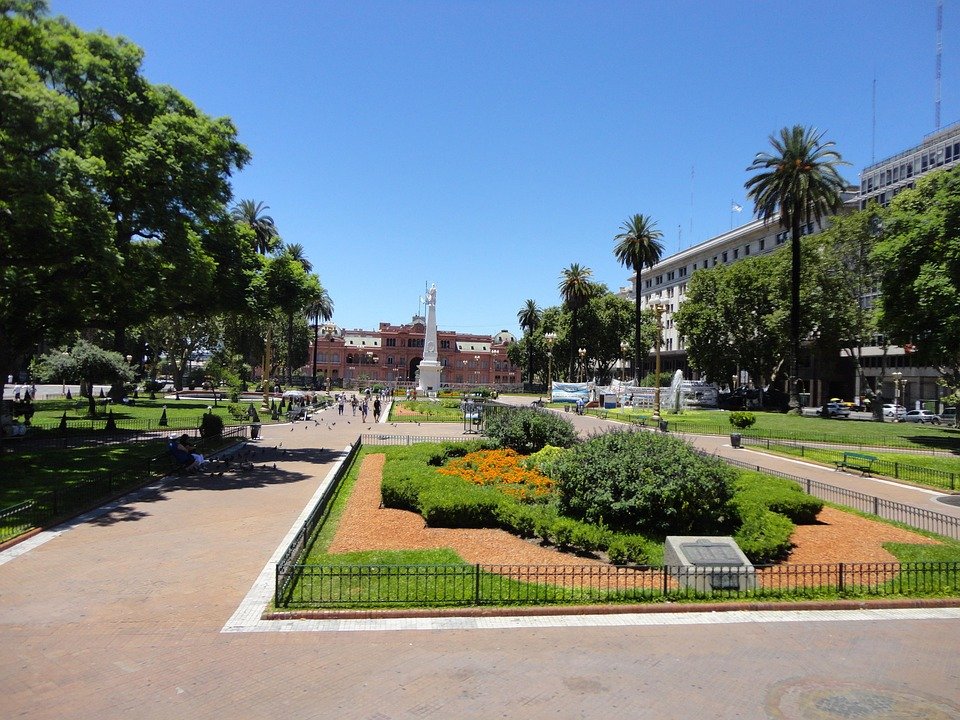Wondering when to go to Buenos Aires without running into huge crowds or bad weather? That's a common dilemma for travelers planning their adventure. The best time really depends on several factors: the weather, your budget, any local events you might want to catch, and the experiences you're after. Let's break it all down so you can find that sweet spot for your trip to this vibrant city.
Overview of Buenos Aires's Climate
Before diving into the specifics, it's good to know the overall climate in Buenos Aires. The city enjoys a humid subtropical climate, which means it has hot summers and mild winters. You'll notice a distinct dry season from May to August and a wetter period from November to March, with summer being the most humid time.
Weather in Buenos Aires
- Summer (December – February): Expect temperatures ranging from around 25°C to 35°C (77°F to 95°F). It can get pretty steamy, and the humidity might leave you feeling a bit sticky.
- Autumn (March – May): Temperatures begin to cool down to a comfortable 15°C to 25°C (59°F to 77°F). This is when the city's parks take on beautiful fall colors.
- Winter (June – August): Mild with temperatures hovering between 10°C to 15°C (50°F to 59°F), making it quite pleasant. Rain is less frequent, too.
- Spring (September – November): Similar to autumn, temperatures range from 15°C to 25°C (59°F to 77°F). It's a lovely time for blooms and outdoor cafes.
Month-by-Month or Seasonal Breakdown
January – February (Summer)
- Weather: Hot and humid, with temperatures often exceeding 30°C (86°F).
- Events: The city comes alive with various street festivals and parties. It's also when you find the famous Carnaval del País.
- Pros: Vibrant party atmosphere and buzzing nightlife.
- Cons: Tourist crowds and high hotel prices.
- Best for: Party lovers and those who enjoy the summer heat.
March – May (Autumn)
- Weather: Comfortable with mild temperatures. Perfect for sightseeing.
- Events: Tango festivals and cultural events like the Buenos Aires International Festival of Independent Cinema.
- Pros: Fewer tourists and moderate hotel rates.
- Cons: A bit unpredictable weather-wise; occasional rain.
- Best for: Cultural enthusiasts and those who prefer a quieter experience.
June – August (Winter)
- Weather: Mild and mostly dry, perfect for exploring.
- Events: The city is relatively quiet; expect fewer tourists.
- Pros: Cheaper hotel rates and local events like the Buenos Aires Jazz Festival.
- Cons: Some attractions may have shorter hours.
- Best for: Budget travelers and anyone looking for a tranquil experience.
September – November (Spring)
- Weather: Pleasant with rising temperatures and revitalized city life.
- Events: Primavera Te Amo, celebrating the arrival of spring with flowers and outdoor activities.
- Pros: Beautiful blossoms and outdoor cafes are in full swing.
- Cons: Crowds begin to swell as spring progresses.
- Best for: Nature lovers and those who enjoy a vibrant city atmosphere.
Tips Based on Travel Style
For Budget Travel
If you're looking for the cheapest time to visit Buenos Aires, aim for June to August (Winter). Accommodation rates plummet, and you can find great deals on food and activities.
For Avoiding Crowds
Traveling during March to May (Autumn) is a smart move if you want to dodge the peak tourist season. The weather is still quite pleasant, and you'll get to enjoy the city without feeling overwhelmed.
For Outdoor Activities or Cultural Events
September to November (Spring) is ideal. The city's parks are blooming, and there are loads of outdoor activities happening. Plus, the cultural vibe is unbeatable.
For Romantic or Solo Trips
Consider April or October. The weather is comfortable for long walks in parks, and there are plenty of cozy cafes perfect for a romantic evening or solo reflection.
It really depends on what kind of experience you're looking for. Some travelers love January because of the lively vibe, while others aim for the festivals in March or the budding nature in October.
FAQs
Is January a good time to visit Buenos Aires?
Yes, if you enjoy warm weather and vibrant atmosphere. Just be prepared for the heat and crowds!
When is the rainy season in Buenos Aires?
Most rainfall occurs from November to March. It can get particularly wet in December and January.
What's the cheapest time to visit Buenos Aires?
The winter months of June to August offer the best prices for accommodation and activities.
What's the peak season in Buenos Aires?
Summer months, especially January and February, tend to be the busiest times for tourists in Buenos Aires.
So, whether you're after a laid-back getaway, a cultural deep-dive, or a party-packed adventure, Buenos Aires has something to offer all year round. Plan wisely, and you'll surely have an unforgettable experience!








